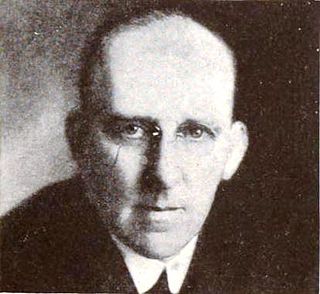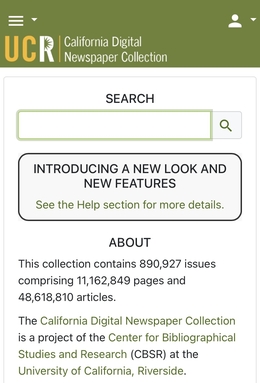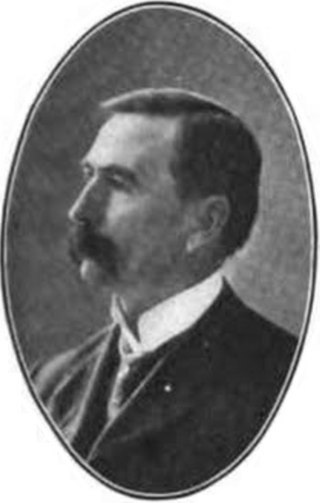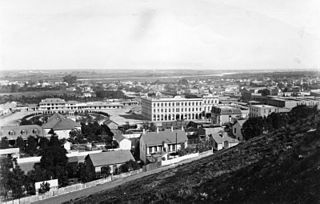Related Research Articles

Curtis Dwight Wilbur was an American lawyer, California state judge, 43rd United States Secretary of the Navy and a United States circuit judge of the United States Court of Appeals for the Ninth Circuit.
Copley Press was a privately held newspaper business, founded in Illinois, but later based in La Jolla, California. Its flagship paper was The San Diego Union-Tribune.

Charles Eyton was an actor-producer who became general manager of Famous Players-Lasky Corporation during the silent film era.

Andrew Jackson Bryant, known as A.J. Bryant, (1831–1888) was the seventeenth mayor of San Francisco, California, serving from December 1875 to December 1879 during a lengthy economic depression that struck San Francisco and the rest of the country. Bryant was a strong advocate for an eight-hour work day as well as legislation to halt the immigration of Chinese laborers into the state. A prominent insurance man and a sportsman, he drowned in the San Francisco Bay after falling from a ferryboat.

The Los Angeles Examiner was a newspaper founded in 1903 by William Randolph Hearst in Los Angeles, California. The afternoon Los Angeles Herald-Express and the morning Los Angeles Examiner, both of which had been publishing in the city since the turn of the 20th century, merged in 1962. For a few years after this merger, the Los Angeles Herald Examiner claimed the largest afternoon-newspaper circulation in the country, publishing its last edition on November 2, 1989.

The history of newspapers in California dates back to 1846, with the first publication of The Californian in Monterey. Since then California has been served by a large number of newspapers based in many cities.
Newspapers in the United States have traditionally endorsed candidates for party nomination prior to their final endorsements for president. Below is the list of endorsements in 2008, by candidate, for each primary race.

Charles Harris Garrigues (1902–1974) was an American writer and journalist who wrote as C.H. Garrigues. He was a general-assignment reporter in Los Angeles, California, in the 1920s, a grand jury investigator and political activist in the 1930s, a newspaper copy editor in the 1940s and a jazz critic in the 1950s. His nickname was Brick, for his red hair.

Walter Van Dyke was a Los Angeles County Superior Court judge and a justice of the California Supreme Court in the late 19th and early 20th centuries.

The California Digital Newspaper Collection (CDNC) is a freely-available, archive of digitized California newspapers; it is accessible through the project's website. The collection contains over six million pages from over forty-two million articles. The project is part of the Center for Bibliographical Studies and Research (CBSR) at the University of California Riverside.
H. C. Cardwell was a pioneer settler in California who served in the Mexican–American War, served as Zanjero of Los Angeles, was a major contributor to early California business and agriculture, and served in the first California State Assembly in 1849–1850.

Sydney Kai Kamlager-Dove is an American politician serving as the U.S. representative for California's 37th congressional district since 2023. A Democrat, she previously served in the California State Senate, representing the 30th district. She has also served in the California State Assembly and as a trustee for the Los Angeles Community College District.

Charles Henry Garoute was an American attorney and Associate Justice of the Supreme Court of California from January 5, 1891, to January 5, 1903.

William Arthur Sloane was an associate justice of the Supreme Court of California from May 15, 1920, to January 1923.

Sonoratown was a neighborhood of downtown Los Angeles, California.
The Inglewood Daily News was published in Inglewood, California, beginning around 1908 and ending in 1979 or after.
Community newspapers in Hollywood, California, have included the Hollywood Sentinel, Hollywood Inquirer (unknown-1914), Hollywood Citizen (1905–1931), Hollywood News, (unknown-1931), and Hollywood Citizen-News (1931–1970).

Fredrick Crissman Wheeler was a Los Angeles, California, City Council member who was active in labor-union affairs and state and municipal politics.

The weekly Culver City Call was the first newspaper published in Culver City, California. The paper was founded in 1913 by S.C. Perrine, who was also secretary of the Culver City Chamber of Commerce.

The Venice Vanguard was a newspaper circulated in Venice, California, beginning in 1907. By 1984 it had become a "throwaway shopper."
References
- ↑ 1880 U.S. census
- ↑ Illinois State Marriage Records. Online index. Illinois State Public Record Offices.
- 1 2 "Print Paper Cost," Los Angeles Times, September 18, 1917, image 16
- 1 2 "Judge Rennie Falls Victim of Pneumonia," Los Angeles Times, January 23, 1919, image 17
- 1 2 "Venice Newspaperman Dies in Sacramento," The Sacramento Star, January 23, 1919, image 5
- ↑ Venice Vanguard, January 23, 1919
- ↑ "Amateur Conductors to Lead Italian Band," Los Angeles Herald, May 18, 1910, image 14
- ↑ "40 Scribes Make 'Kite Track' Trip," Los Angeles Herald, November 28, 1910, image 12
- ↑ "Venice Paper Goes Daily," Los Angeles Daily Times, March 16, 1949, image 41
- ↑ "Resigns as Secretary," Los Angeles Daily Times, February 23, 1912, image 16
- ↑ "Phenomenal Growth Venice Daily Vanguard," The Venice Daily Vanguard, July 19, 1913,, image 2
- ↑ "Editor Appointed Justice," Los Angeles Herald, January 11, 1910, image 14
- ↑ "Rennie Gives Up Race; Field to Bloodgood," Los Angeles Express, August 28, 1912, image 3
- ↑ "Summary of the Day," Los Angeles Times, October 19, 1910, image 18
- ↑ "Editor Wants $50,000 for Being Called 'Sewer Rat,'" Los Angeles Herald, October 19, 1910, image 8
- ↑ "Venice Daily Vanguard; Publishing and Printing, September 19, 1911, image 3